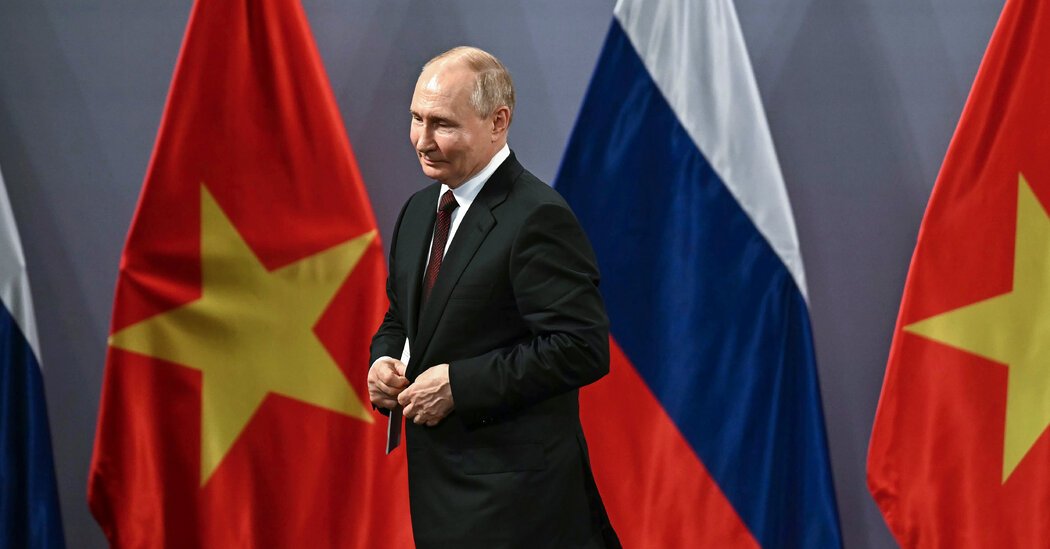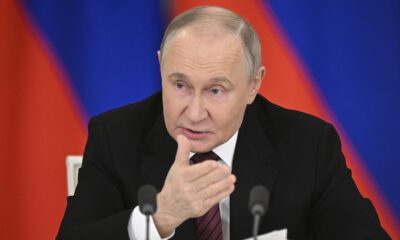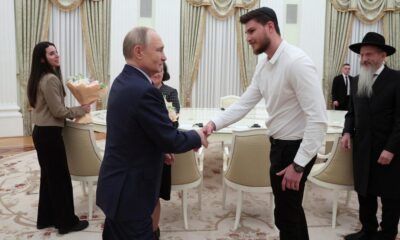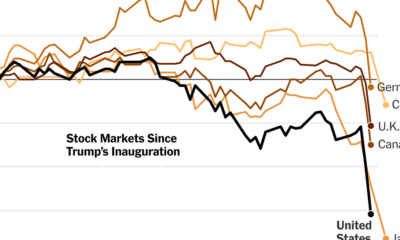Breaking News
Putin Came to Asia to Disrupt, and He Succeeded

In just four days, President Vladimir V. Putin of Russia managed to stir up tensions in Asia, causing unease among several Indo-Pacific nations. His visits to Pyongyang and Hanoi reshaped the risk landscape in the region, with North Korea receiving promises of military aid from Russia, and Vietnam signing multiple deals with Putin emphasizing the need for a reliable security architecture.
The trip highlighted the complex power dynamics at play in the region, showing that the rivalry between the United States and China is not as straightforward as it may seem. This has left many countries in the area feeling more uncertain about the future.
Putin’s actions have added another layer of complexity to the already tense situation in the Indo-Pacific, particularly with regards to security and Great Power competition. The region has been grappling with the growing tensions between the US and China, especially concerning Taiwan and the South China Sea.
Recent incidents, such as naval clashes in the South China Sea and China’s military drills around Taiwan, have heightened concerns about potential conflicts in the region. Countries like the Philippines, allies of the US, have found themselves in precarious situations due to these escalating tensions.
The region has already been on edge due to the US-China rivalry and the uncertainty surrounding it. The recent developments, including Putin’s actions in Asia, have only added to the existing challenges and raised further concerns among countries in the region.
With Putin’s alignment with North Korea and the implications it carries for the Korean Peninsula, countries like South Korea and Japan have been particularly alarmed. The growing hostilities and military threats in the region have prompted discussions on strengthening defenses and alliances with the US.
Peter Tesch, Australia’s former ambassador to Moscow, emphasized Putin’s disruptive tactics and his preference for chaos in global affairs. By engaging with rogue states like North Korea, Putin aims to assert Russia’s influence and create instability in the region.
The repercussions of Putin’s actions in Asia extend beyond political maneuvering, with potential arms races and economic implications at play. Russia’s historic military ties with countries like North Korea, India, and Vietnam have resurfaced, highlighting the complex web of relationships in the region.
As countries in the region navigate these turbulent waters, the implications of Putin’s moves in Asia continue to unfold. The delicate balance of power, alliances, and security concerns in the Indo-Pacific region remains a critical issue that requires careful navigation.
The aftermath of Putin’s visit to Asia underscores the challenges and complexities facing the region, with countries like Vietnam facing tough decisions on military upgrades and alliances. The evolving dynamics in the Indo-Pacific will have a lasting impact on regional stability and security.
The convergence of interests and conflicts in Asia, exacerbated by Putin’s actions, highlights the need for careful diplomacy and strategic decision-making in the region. As major powers like Russia, China, and the US jockey for influence, the stakes are high for all countries involved.
-

 Destination8 months ago
Destination8 months agoSingapore Airlines CEO set to join board of Air India, BA News, BA
-

 Breaking News10 months ago
Breaking News10 months agoCroatia to reintroduce compulsory military draft as regional tensions soar
-

 Gadgets3 months ago
Gadgets3 months agoSupernatural Season 16 Revival News, Cast, Plot and Release Date
-

 Tech News12 months ago
Tech News12 months agoBangladeshi police agents accused of selling citizens’ personal information on Telegram
-

 Productivity11 months ago
Productivity11 months agoHow Your Contact Center Can Become A Customer Engagement Center
-

 Gadgets4 weeks ago
Gadgets4 weeks agoFallout Season 2 Potential Release Date, Cast, Plot and News
-

 Breaking News10 months ago
Breaking News10 months agoBangladesh crisis: Refaat Ahmed sworn in as Bangladesh’s new chief justice
-

 Toys12 months ago
Toys12 months ago15 of the Best Trike & Tricycles Mums Recommend























